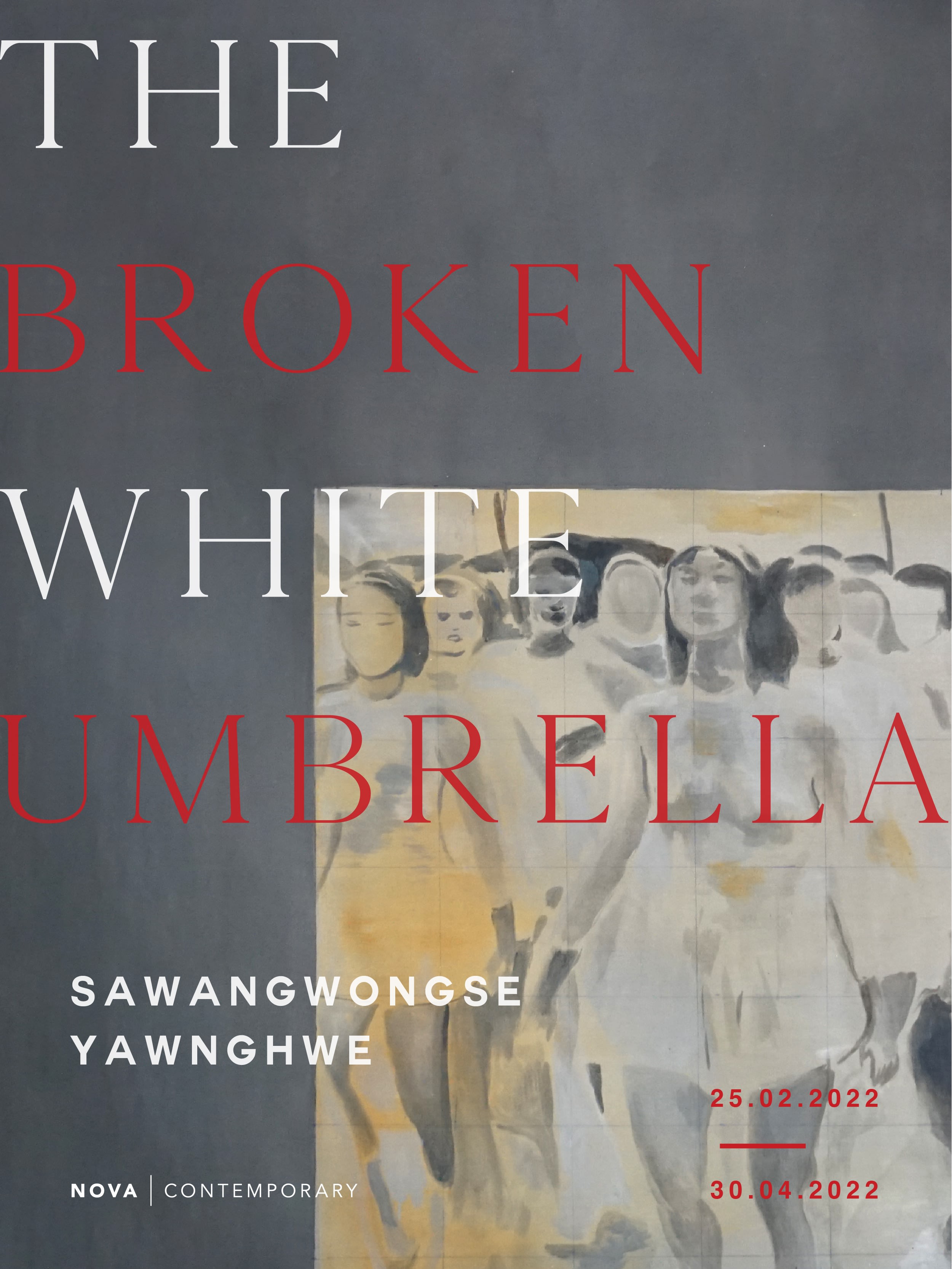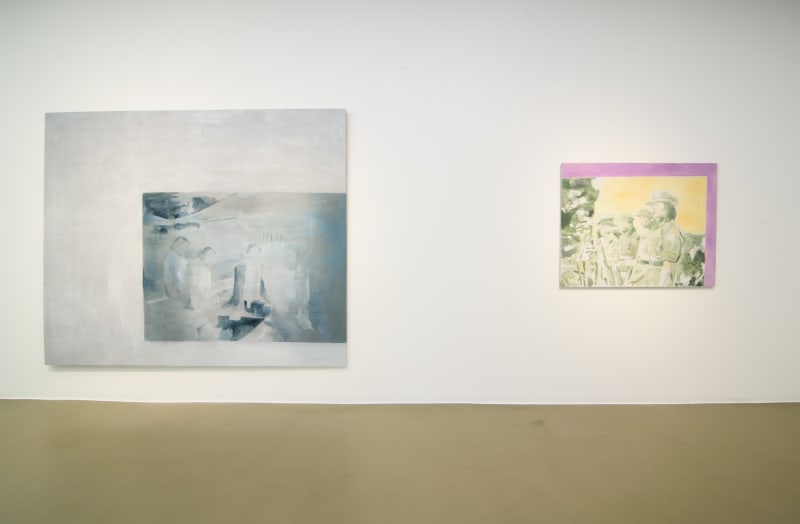In this modern new body of work, Sawangwongse Yawnghwe (b. 1971, Burma) reluctantly addresses the continued uncertainty and pessimism around his country’s future, by turning inward and ruminating on Hegel’s idea of “imminent reversal.” Through these painted works Yawnghwe not only explores current events in parallel with his family's exilement following the Burmese military coup of 1962, but posits himself as an unblinking witness to the repetitions of history.
This body of work is process-based; it is a search for meaning. Building upon a lifetime of sourcing and collecting photographs, stories, and memories has resulted in the artist’s complete entwinement with the history of family and of his country. Here, Yawnghwe takes eight archival images from early-mid twentieth century Burma, and in relating them on canvas, creates new modernist compositions with Barnett Newman-like bands of color. The source photographs he treats as a neutral document of the past, and—uninterested in its perfect recreation— Yawnghwe explores the act of creating, morphing these untold and fast-fading histories into contemporary objects with new materiality. Removed in time and space as he is from the stills of the archives, he sets a scene for the viewer, almost cinematic, creating a new structure and a new vocabulary through which to come to terms with the present. While previous series have been more explicit commentaries on transnational politics, in The Broken White Umbrella, the artist offers a distinctly softer and more personal perspective.
And yet, Yawnghwe incorporates a range of diverse references and techniques to mark a body of artwork that goes far beyond the politics of personal identity. Inspired by the haunting imagery of Zoran Mušič and Mariam Cahn, this body speaks to the trauma, the loss, and the pessimism that has come to define Burma in 2022. But in it, we see a defiance. The contemporary Slovenian philosopher Žižek spoke of rootlessness as a means to becoming untethered, to becoming truly free and universal: Despite the warmth of Yawnghwe’s own rootless nostalgia, his artwork—made in exile—is also an act of self-creation and of reconciliation with the trauma of military rule in Burma.
In this most recent chapter of Burma’s history, millions more are now experiencing the fear and the exile his parents faced. Yawnghwe does not purport to take us back, he merely asks us to observe the present echoing the past: just as the Shan histories are dissolving from sight, so too are the gains of the present generation. The undefined and often enigmatic figures of these paintings symbolize the not just the temporal decay of the photographs from which they are based, but also that of tradition and nation.
Like the refugee artists of the WWII generation who found refuge in the Netherlands, Yawnghwe works in relative anonymity from the quiet sanctuary of Amsterdam, and yet in his work there exists the universality that defines the recurring horrors of humanity.
The title of this exhibition takes as its inspiration a recent book, The White Umbrella about the artist’s grandmother. Traditionally, a white umbrella was held over the heads of members of the Shan royal family, of which Yawnghwe is a descendent.

This exhibition is in collaboration with TKG+ gallery.
![]()


